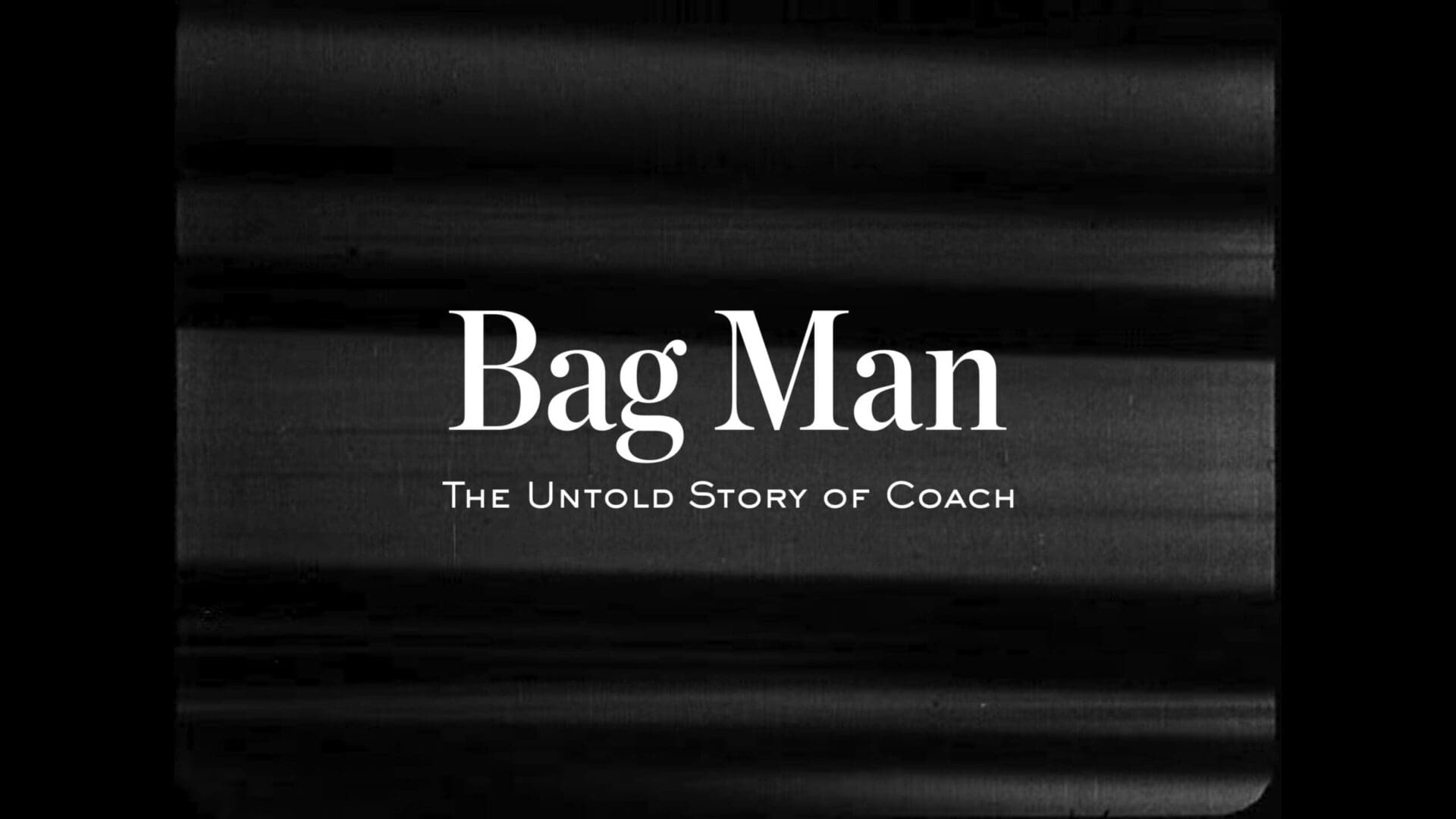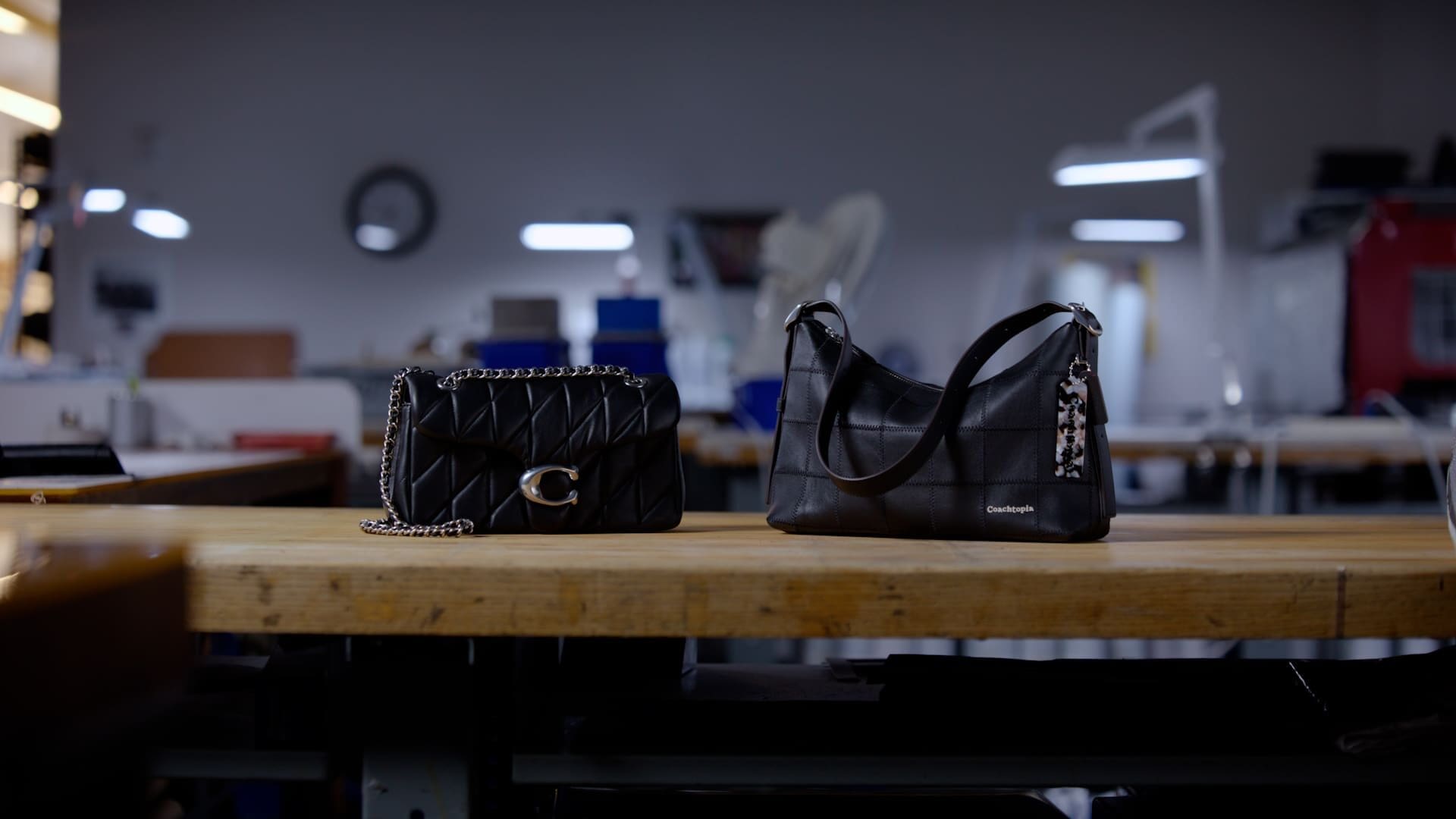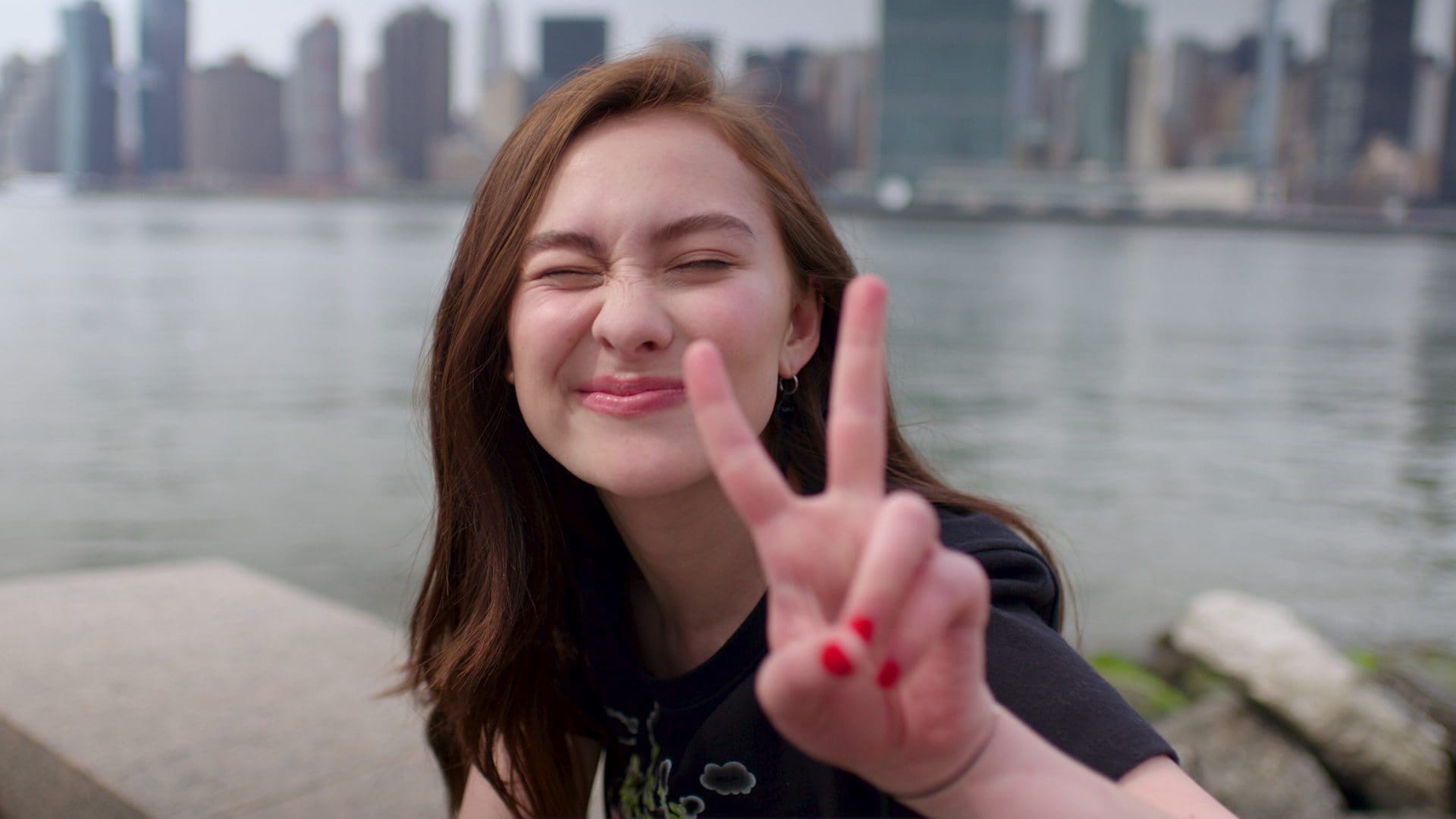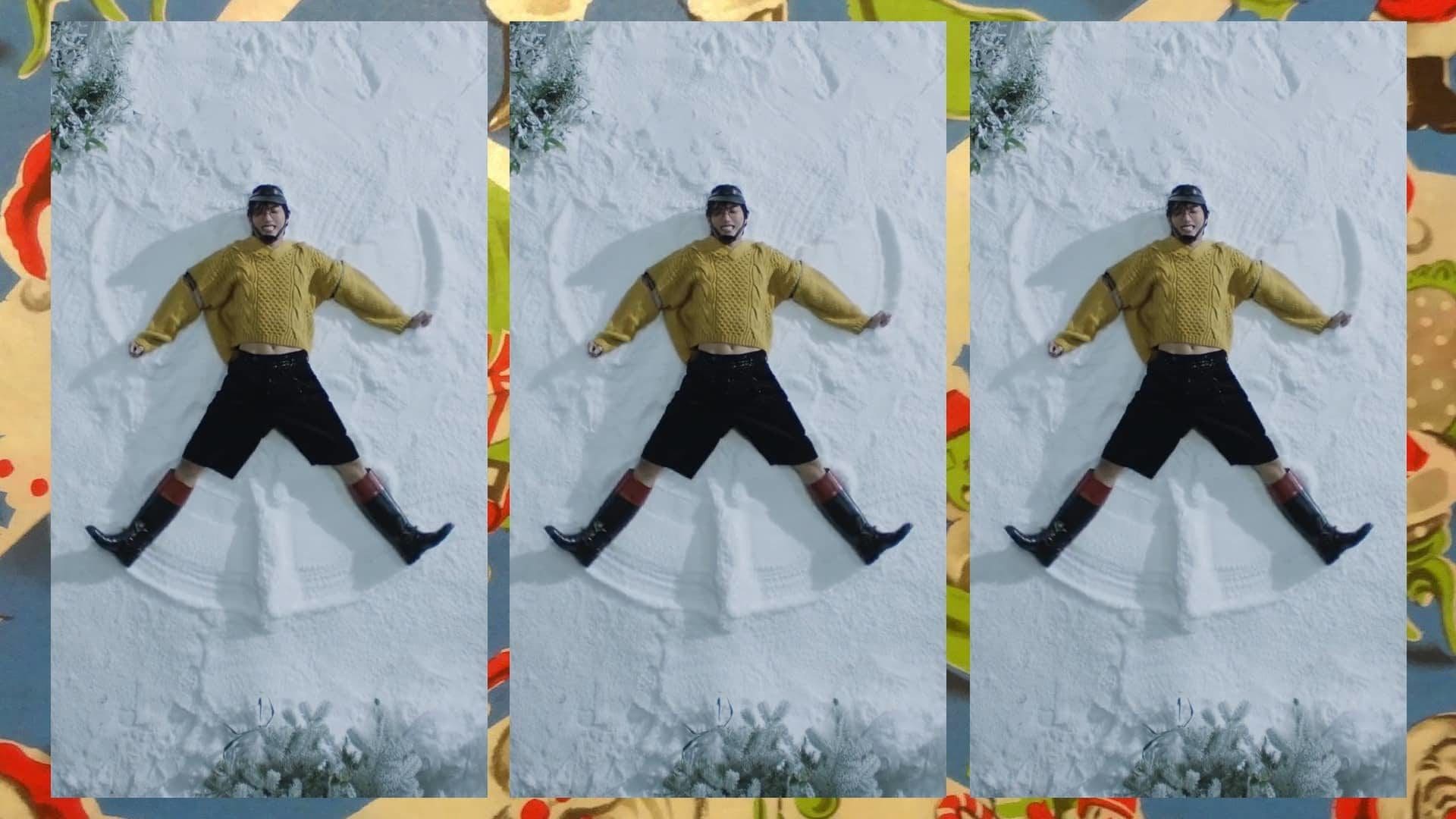Lew Frankfort: Bag Man — The Untold Story of Coach
Fear Can Build an Empire
For Lew Frankfort, the story of Bag Man isn’t about glossy milestones — it’s about the inner engine that powered a lifetime of transformation. The film frames a life lived between vulnerability and vision, where pressure becomes focus and doubt becomes drive.
In Lew’s words: “I was always driven towards excellence with a concurrent fear of failure…” That tension — excellence alongside a persistent edge of fear — is the thread we pull through this piece. It’s not fear for fear’s sake; it’s the productive kind that sharpens decisions and demands reinvention.
We root the story not in runways, but in memory. The black-and-white Bronx of Lew’s childhood sets the tone: stoops and sidewalks, a world of grit and possibility. From there, Bag Man moves steadily toward the rooms where choices are made — choices that would transform a beloved leather-goods house into a cultural icon.
Our intent with this film was simple: don’t narrate a resume; reveal a person. The portrait that emerges is of someone who learned to move through pressure instead of around it — someone who turned fear into a discipline, and discipline into a legacy.
From Book to Film — Turning a Memoir into a Cinematic Experience
When Coach came to us, the ask was straightforward: create a trailer for Bag Man. But as we listened to Lew describe his life, we saw something larger. His story wasn’t just a book launch — it was a full narrative arc waiting to be told on screen. We imagined a film that would feel like a trailer for a TV series you’d want to start watching.
So we built our process around a single interview — one uninterrupted hour with Lew in front of the camera. No teleprompter. No script. Just conversation. The idea was to find truth, not polish. Our job was to create the conditions where he could think, feel, and remember.
Lew’s words quickly became the spine of the film. At one point he reflects, “Sometimes when you choose the wrong opportunity, it leads to the right destiny.” That line reframed everything. It’s not just about career choices; it’s about perspective — the awareness that mistakes and missteps can be the doorway to transformation.
We followed that instinct through every decision. Instead of selling a product, we shaped an experience: a portrait of ambition, fear, and reinvention. The result is a trailer that feels alive — cinematic rather than promotional, intimate rather than informational.

Lew and Bobbi Frankfort, together for over fifty years, photographed with their two dogs — a quiet moment of partnership and perspective from RIOT’s Bag Man trailer for Coach.
Building the Visual Language of a Life
We wanted Bag Man to feel lived in — not staged. Every frame needed to carry the weight of memory. To do that, we began with the world that shaped Lew: the Bronx of the 1940s and ’50s. We sourced public-domain footage that captured the rhythm of the streets — stickball games, fire escapes, and corner stores — textures that could have belonged to his own childhood. These images gave the film a sense of time, place, and heart before a single word was spoken.

Archival footage of the Bronx featured in RIOT’s Bag Man film for Coach — evoking the neighborhood where Lew Frankfort’s story began.
From there, we dove into the Coach archives to uncover the brand’s parallel journey. The discovery of early workshop photographs, factory details, and even footage of Coach at the New York Stock Exchange became our connective tissue. Each element wasn’t simply inserted as a historic reference; it became part of Lew’s interior world, a reflection of where discipline met imagination.
Our goal was to bridge two timelines — the boy from the Bronx and the man who built an empire. By layering archival imagery with modern cinematography, we built a visual conversation between past and present. The result is a film that feels both intimate and expansive: the story of one life, told through the evolution of a brand that mirrored it.
“I was always driven towards excellence with a concurrent fear of failure, and it never allowed me to be complacent.”
This was where Magic + Logic first began to manifest in the craft itself — imagination in how we re-created a world long gone, and logic in the precision of how every piece of history was placed. Together they gave Bag Man its visual soul.
Magic + Logic — The Philosophy That Built an Icon
Every great brand has a belief system. For Coach, it was born from Lew Frankfort’s understanding that creativity and discipline are never at odds — they’re partners. The world knows this now as Magic + Logic, but in the film, Lew says it more plainly, and more powerfully.
That simple truth became the heartbeat of the film. It’s how Coach was built, and it’s how we approached Bag Man — by letting emotion and precision exist side by side. Our cinematography leaned into that duality: archival grit balanced with modern elegance, raw storytelling meeting carefully measured rhythm.
Lew’s delivery of that line is calm and matter-of-fact, but it carries the weight of decades of leadership. He doesn’t need to sell the idea; he embodies it. Magic + Logic isn’t an invented tagline — it’s a lived philosophy, one that defined how Coach grew from a small leather workshop into a global icon.
“There’s logic in everything we did and there’s magic in everything we did.”

Archival footage of Lew Frankfort and the Coach team at the New York Stock Exchange — a defining moment of growth and achievement featured in RIOT’s Bag Man trailer.
For us, it is more than a theme. It is a mirror for how we create at RIOT: instinct meeting intention, art meeting structure. The result is a film that doesn’t just talk about balance — it feels it in every frame.
Directing Fear, Courage, and Reflection
When we sat Lew down for the interview, we knew the story couldn’t be scripted. The questions had been shaped carefully, but the goal was to disappear behind them — to let Lew take the lead. What emerged wasn’t performance; it was presence. He spoke with precision, with memory, and sometimes with the hesitation that makes honesty ring true. One of the lines that defined the tone of the film came almost in passing:
“Fear of failure. It’s like a split coin, fear on one side, excellence on the other, and it never allowed me to be complacent.”
That admission unlocked everything. It explained the sleepless nights, the reinventions, the refusal to let comfort dull ambition. We didn’t need to prompt him toward drama — the poetry was already in the truth of how he spoke.
Across sixty minutes of conversation, he moved through fear, courage, and the constant need to evolve. Each answer carried the gravity of lived experience.
Lew also talked about the quiet discipline behind courage — how leadership isn’t about fearlessness but about moving forward despite it. His voice softens when he says:
“We created a super highway between mass and luxury.”

Lew Frankfort shares his “split coin” theory during the making of RIOT’s Bag Man film — a reflection on how fear of failure fueled his drive to lead Coach to extraordinary success.
Moments like that guided our edit. Instead of cutting between questions, we let pauses breathe. We built rhythm around the texture of his thinking — the inhale before a memory, the half-smile that follows a hard truth. That’s where the humanity lives.
For us as directors, this was the essence of the project. The same balance that built Coach — Magic + Logic — shaped the interview itself: intuition to follow a feeling, structure to hold the story together. What came through the lens wasn’t just a brand history; it was a meditation on what it takes to keep building when success has already been achieved.
The World Reacts to Bag Man
When the film launched, the response was immediate and heartfelt. Viewers didn’t just see a story about leadership — they saw their own experiences in Lew’s reflections on fear, courage, and legacy. The conversation that unfolded online showed how deeply Bag Man resonated across industries.
“A perfect reminder that the world’s strongest brands are built on both inspiration and intention — magic + logic working together.”
— BJ Bueno, Cult Branding Expert | Brand Strategy Consultant
“This will be an amazing inspiration for entrepreneurs and professionals to overcome fear and failure.”
— Shaira Zahin Khan, Luxury Retail Product Manager
“What a wonderful tribute to a defining era at Coach. ‘Magic + Logic’ has always been a powerful reminder of what makes a brand enduring.”
— Maricar D., Creative Director / Executive Creative Director
“Lew Frankfort’s ‘magic + logic’ philosophy continues to inspire creators, innovators and leaders everywhere.”
— Val Vacante, Creative Catalyst | Global Innovator
Even Lew himself shared his appreciation for how the story was told:
“Thank you for helping bring Bag Man to life so beautifully.”
— Lew Frankfort, Chairman Emeritus and Former CEO, Coach
For us, these reactions validated everything we set out to do. The film reached beyond a product launch and became a cultural reflection on how creativity, fear, and discipline shape leadership. It sparked conversation among entrepreneurs, designers, and executives alike — proof that Bag Man had moved from being a brand story to becoming a story about being human.
Beyond a Trailer — A Blueprint for Modern Storytelling
Bag Man began as a request for a book trailer and became something far greater — a portrait of leadership, fear, and philosophy told through cinema. It reminded us why we create: to humanize visionaries, to reveal the fragile truths behind success, and to show that the right story, told with authenticity and craft, can shape how the world remembers a brand.
The film is, at its heart, a conversation about balance — how logic structures creativity and how imagination gives discipline a pulse. That intersection is where Magic + Logic lives, and it’s the same intersection we strive for in every project we make at RIOT.
From the first interview question to the final color pass, every creative decision mirrored the philosophy at the center of Lew’s story. The intuition to follow emotion. The logic to craft order. The trust to know that the tension between the two creates something enduring. We didn’t just tell Lew’s story — we lived it through the process of making this film.
Bag Man became a blueprint for modern brand storytelling — proof that business stories can be cinematic, emotional, and deeply human. It’s a reminder that authenticity, not artifice, is what audiences connect to most.
Watch the film above. Feel the story. Discover the man behind the brand.
Magic + Logic. Not just Lew Frankfort’s philosophy — it’s ours too.
RIOT partnered with Coachtopia to bring sustainable luxury to life in the Alter/Ego collection. This visually captivating story, told with the charm of a nature documentary, turns leather scraps into iconic designs, reshaping the future of fashion with every stitch.
Explore the Project →







